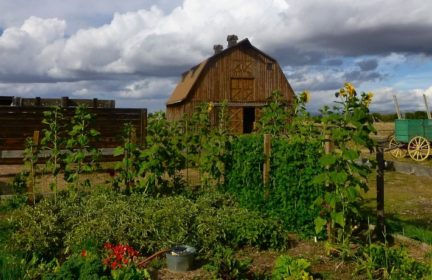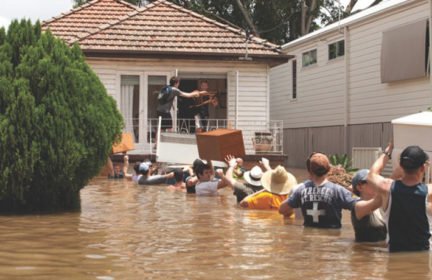Why I wrote: The year the crops failed and famine began in North America
Please see the bottom of this original post for an edit which explains why I wrote this scenario:
It is early evening and you have settled in to relax after this evening’s rations.
Rations. No one used the words “meal” or “breakfast” any more. “Lunch” and “supper” were long gone out of everyone’s vocabulary as well.
The word “snack” was considered vulgar and unthinkable considering the situation. People were hungry all the time now. Some people were even starving.
No one in North America ever envisioned the lands of big sky and bountiful prairie fields to become massive tracts of unproductive wastelands. They were now ugly reminders of a time when bellies were full, so full in fact, that people had to exercise and diet.
No one said the “diet” word anymore either.
Food security was assumed, expected, like a tap that delivered when it was turned on. There was food in the fields, food in the store and food in the cupboard. Then in 2024, a series of events pushed most of the world’s nations into famine.
Climate oscillations triggered climate variability which triggered yield variability.
Climate change had become the tortoise of the fable and it was slowly crossing the finish line first in the battle against environmental disaster.
Bees were on their knees in the fight for their survival and the world had the low yields and harvest failures to prove it. Many countries followed China’s methods and were now reliant upon hand pollination.
Developing countries in Africa, Asia and South America were homes to the vast tracts of monocultures grown to feed the global market, including soy for livestock.
It was an unprecedented alignment of events that became the dominos that fell, one by one, colliding into each other and finally ended with a massive global famine.
You are one of the prepared who accounted for this risk in your planning and preparations.
You learned to garden and save seeds many years before this event. You also created indoor garden space in your garage and home and practiced growing in those conditions in case it wasn’t safe to grow outdoors.
You created a secret garden to supplement your meager food supply. You venture into the parks and back country to forage for food.
The rations supplied by the government provide some nutrition, but your stored food items, plus the indoor and secret gardens give you hope that you and your family can survive this disaster.
Your reverie is interrupted by the commotion outside. You grab your gun and check the security cameras.
There is a man, roughly late 20’s who has breached your fence. He is agitated and yelling something about food. Another desperate one, you think. Were we sloppy with ration handling? Did this guy smell something?
You key the mic. “You are trespassing. Get off this property now.” Your voice booms through the air.
It has no effect on the man who continues yelling. He is saying “Help, please help me. I need a bit of food. Anything, please, I’m begging you.”
Again, you key the mic. “I’m not telling you again. Get off this property now or I will shoot you.
This agitates the man even more and he moves closer to your back door. “No, no, no. Please, you don’t understand, I need help, please, just a bit of food.”
You take aim through your gun port and squeeze the trigger. The man crumples to the ground. You didn’t want to do it, but there are so many of them roaming and looking for food. They are becoming more aggressive and there have been reports of increased violence.
You are getting ready go out and drag the body off your property, when suddenly, there is a shrill cry and a little girl around five years old comes running into the yard. She runs straight toward the man’s body and throws herself upon him. She is crying and wailing.
“Daddy?” “Daddy, wake up!” “Wake up, Daddy.” “Daddy?”
Then little girl suddenly stops and sits silent, still and in shock.
What do you do now?
How would you have handled the situation?
References:
Monocropping and harvest failures
Secret garden – growing food in plain sight
The reason for writing this scenario is buried in a response and I would like to clarify that this was not intended in any way for shock value. It is to outline a very real aspect of prepping under conditions when we have prepared and others have not prepared.
It was also written as a commentary on the fragility of our food security. Here is the piece extracted from the replies:
“I posed a similar scenario to some people many years ago, but did it in two stages and under different conditions. It took place in a pandemic. I was truly surprised back then by the answers I received. I did do it a bit differently.
In the first part, I didn’t disclose the child, only the adult male. Some people shot the guy. A few people social distanced and threw him a takeaway bag of food.
Then I posted the second part about the child. I had made reference to increasing violence in that scenario as well as this one. Now this vulnerable child appears and she is at risk of violence.
In the pandemic scenario, some people were prepared to shoot her also.
Others said they would just go out in ppe’s and take the child in, put her in quarantine in case she was a carrier, and then have her stay with them until things could be sorted out.
Back then, I responded, “You just shot her Dad in front of her. Do you think she will want to go with you?”
The responses that were the most chilling, were from people who stated that they would leave her out there to fend for herself alone, amidst the violence.
Those responses came from people who didn’t seem like the kind of folks who would ever respond that way. It was an eye opener.
It got me thinking about building prepping community. When we build prepper community, we are looking at a criteria. I realized back then, that we have to look deeper into how people will react under various conditions.”
In the replies is a link about my friend’s father who was a Hong Kong Vet. The long term starvation aspect was the reason I mentioned it in the replies and then decided to include his story from the Hong Kong Vets Association. It is a riveting account of how a group of young men used guts and ingenuity to survive as POW’s in the notorious Chinese and Japanese POW camps.
These men were starving and maltreated and yet they found ways to eat, improvise medical equipment and endure the brutality of the camps. Ultimately, you will see an incredible story of survival and courage with lessons relevant to this day for anyone who prepares. May we all be as strong.
William Bell Hong Kong Vet POW and Survivor
-
Comments (29)
-


